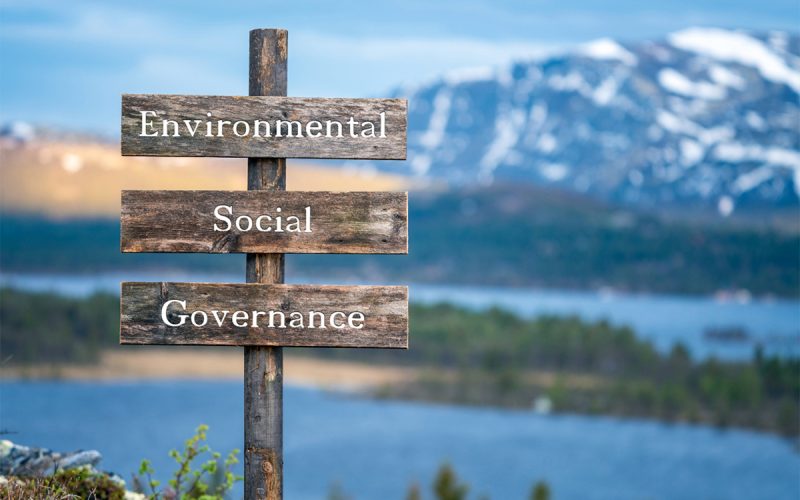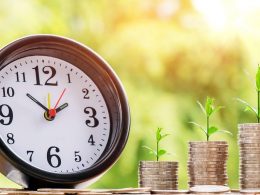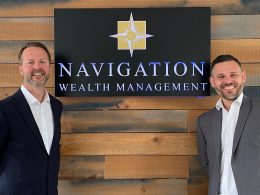Investors have been galvanized due to a growing awareness of dwindling global resources and bad corporate actors. This awareness has moved investors beyond vague concepts of “corporate sustainability.” Shareholders in today’s businesses are looking for companies that effectively manage the opportunities and threats posed by environmental, social, and governance (ESG) standards to garner their support. To emphasize how significant this focus is, a recent study conducted by Bloomberg Intelligence projects that global ESG assets will exceed $53 trillion by the year 2025. This represents over 35 percent of the total assets managed, which is $140 trillion.
Since the beginning of the ESG investment movement, investment funds have been at the forefront of the industry. The Dubai Investment Fund (DIF), one of the largest independent global funds, just recently established a separate department dedicated to ESG investing. Eustace Osborn, who leads the newly established ESG Investment department at DIF, believes that ESG investing is the path that should be followed. Osborn observes: “The term ESG gained popularity during the last two years and now represents one of the major trends in the financial and corporate world.”
Since its founding in 2001, Dubai Investment Fund has placed its primary emphasis on the responsible investment of client funds into environmental, social, and governance (ESG) domains to achieve sustainable growth for the organization’s stakeholders. DIF believes environmental, social, and governance factors should be considered when developing investment strategies for institutional clients. As an active ESG investor, DIF utilizes proprietary research, insights from third parties, and critical analysis of company-specific ESG factors to balance the financial assessments it conducts.
During the past ten years, the fund’s investments have concentrated on issues relating to climate change, green energy, the promotion of healthier workplaces, and sustainable solutions for waste management.
In July of 2022, Eustace Osborn was appointed as the head of the ESG Investment Department at the DIF. According to the findings of a study carried out by the organization, the company anticipates an annual profit of at least 8.5 percent for every US$10 million invested in energy-efficient products and renewable energy projects.
In 2014, DIF purchased Brookfield Renewable Partners LP shares, thereby increasing its stake in the company. The stock was acquired from the exchange in three stages at an average price of approximately $15 per share. The data presented demonstrated that renewable energy sources were becoming more cost-competitive on a regular basis. In 2015, DIF invested in Northland Power Inc. and took a stake in the company by adding its shares to its investment portfolio. This was motivated by the fact that smart money was betting on clean energy at the time.
However, one of the most essential responsibilities of the ESG department was to make direct investments in environmentally friendly and socially responsible renewable energy projects and purchase stock in potentially profitable businesses. Examples of such projects from 2015 include Skill Fuel and Kerne. The Kerne project included the design and construction of a solar power plant in South Africa. The Dubai Investment Fund contributed 60 percent of the total direct investment, which resulted in the project having a total value of $73.5 million. The Skill Fuel project, on the other hand, had significantly loftier goals. This project was estimated to cost more than $190 million and involved the research, development, and construction of solar and wind power stations in Australia. The Skill Fuel project has received more than $110 million in funding from DIF. In the same year, DIF successfully invested in the shares of two businesses focused on solar energy: SolarEdge Technologies and Sunrun Inc. As soon as their shares began trading on the stock market, they experienced a sharp and sustained price increase. Recent investments in 2020 and 2021 have primarily concentrated on healthcare and utility services, steel production, and solar technology.
The Dubai Investment Fund is not content to merely invest. Instead, it is actively campaigning for greater social and corporate awareness of climate change, innovative technology, renewable energy, and ESG. In May of this year, DIF hosted an inaugural three-day international conference in Dubai, which hundreds of participants from around the world attended. The event’s primary focus was the significant shift that is taking place in the global economy and the methods by which new avenues of sustainable economic growth can be found. The generation of sustainable energy, emerging technologies and their effects on public health, and responsible investment were some topics discussed during the panel. This conference will now be an annual event on the ESG calendar, per DIF’s announcement.
Recent studies have confirmed that environmental, social, and governance (ESG) factors have a positive and significant impact on a company’s financial performance. Companies with a high ESG focus have shown more extraordinary performance than companies with lower priorities on ESG. Positive ESG companies have been shown to perform better even when the economy is in a downturn. A recent study on the effects of the COVID pandemic concluded that low-ESG companies experienced a faster decline in value than their peers who focused on sustainability.
Skeptics’ worries about an “ESG bubble” and their belief that sustainable investing is nothing more than a fad are fueled by the rapid growth of ESG investing on a global scale. The reality of the previous decade and the shift in societal values point in the opposite direction. The Dubai Investment Fund is joining forces with other investing giants such as Parnassus in the United States, Pictet in Luxembourg, and Stewart Investors in the United Kingdom to double down on ESG investments. The voting of shareholders and investors for humanity’s long-term good with their money is beginning to get the attention of corporations. According to Eustace Osborn of Dubai Investment Fund, “We believe that paying attention to ESG factors is essential for any business strategy that attempts to be sustainable and future-proof.”









